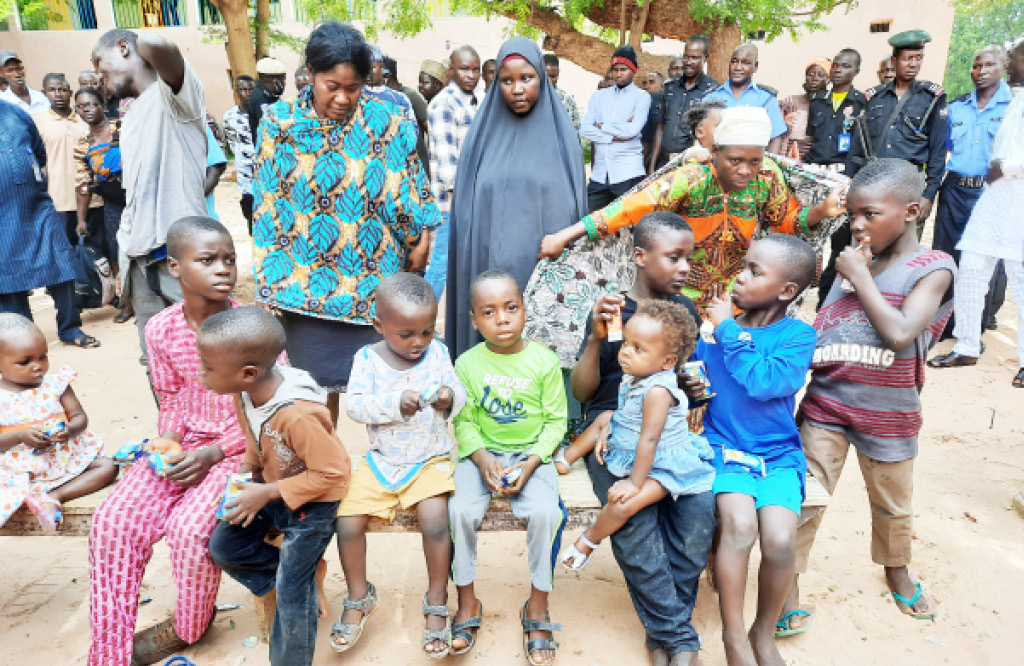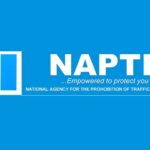Human trafficking is as old as history itself. Slavery, seemingly, was a byproduct of this demeaning and dehumanizing enterprise.
The United Nations sees human trafficking as a global scourge, and defines it as, “the recruitment, transport, transfer, harbouring, or receipt of persons, by means of the threat or use of force or other forms of coercion, of abduction, of fraud, of deception, of the abuse of power or of a position of vulnerability or of the giving or receiving of payments or benefits to achieve the consent of a person having control over another person, for the purpose of exploitation.”
The above explication, by the UN, on human trafficking, is a direct expository and a resounding flagellate, on the consciousness of the people and societies of northern Nigeria.
Child trafficking is generally understood, within the context of the violation of children’s fundamental rights. Such rights, include freedom of existence, and choices. Again, child trafficking, hitherto results from the failure to protect children and safeguard their rights.
Such rights, of an Arewa Child, have been grossly violated. For a little over three decades, northern children were kidnapped, trafficked and sold by human merchants, identified as persons and individuals from southeastern Nigeria.
For instance, in 2019, the Kano State Police Command arrested eight people in connection with the trafficking of some northern children. The children, aged between two and 10 years, were kidnapped from various locations within the state capital and trafficked to Anambra State.
Similarly, in 2013, in Lafia, the Nasarawa State capital, a syndicate of human and especially child trafficking ring was busted by law enforcement. The syndicate consisted of three females, and nine males.
Only recently, the police in Kano paraded another syndicate, operating same criminal and demeaning enterprise, in Bauchi State. The Bauchi-Kano axis of evil route, in this inhumane trade, brings to mind, the senseless desperation and quest for quick riches of some individuals.
We cannot isolate, or downplay the porosity between the institutions of pawnship, slavery, girl-child marriage, serfdom, clientelism, and servanthood. The transformation of child pawning, a family strategy that used children’s labour as collateral for loans, is highlighted as an institution that allowed slippages from ‘pawn’ to ‘slave’ as the procurement and post-slavery exploitation of children became an important local system of attaining child labour, in eastern Nigeria.
Many parents pawned children in order to pay colonial taxes. Men pawned girls to raise the bride price needed for their own marriages, and child dealers, stole and sold children to add to their personal wealth.
As northerners, we must seek to provide answers, as to why our children, are usually the (COMMODITY) traded (TRAFFICKED), in this evil chain of trade. It brings to mind, the nature and level of social interaction, as well as intergroup relations between us, and our guests. For a fact, an average northerner is accommodating, receptive and warm. Trust among northerners, and being a brother’s keeper, was a core reason, a child can move, play, and sent on errands, regardless of age, without fear of being kidnapped.
It is with such atmosphere, we accepted, lived and interacted with our guests, from the south. Unfortunately, our guests mistook our courtesy for stupidity, to the point, our children became a commodity of trade. An evil and demeaning trade.
Federalization, urbanization, globalization, social interaction, and most importantly, democracy have lumped us together. The marriage of convenience, or inconvenience, has limited some responses, to which we could assert, in providing safeguards for our children. But we must act. Child trafficking results from the failure to protect children and safeguard their rights. It is thus a failure towards all children. Protection should be a systemic and ecological feature of the contexts of children’s lives. Additionally, the response to the various needs of each and every child should be the primary concern of children’s services and programmes.
Therefore, for this purpose, instead of a policymaking approach based on a patchwork of scattered and partial measures, we need effective and integrated public policies, particularly child and family policies, informed by rigorous and systematic research. Moreover, the proliferation of plans with goals insufficiently developed and evaluated should give way to a cohesive national anti-child trafficking approach.
The Child Rights Act, 2003 is not sufficient enough, as a policy document. It has not prevented the poaching and kidnapping of northern children.
What the Northern parent needs is a social reorientation, pertaining to parenting. A social register must be opened in wards, communities and neighbourhoods, to identify individuals convicted of child trafficking. Individuals with questionable demeanour or character must be promptly reported to law enforcement agencies. This brings to mind, the call for reestablishment of the central and constitutional roles of community and traditional leaders. In the past, such leaders were the bulwark of their communities. Whenever a strange face was sighted, he would be promptly reported to the leadership of such community.
Time has changed. Our attitudes towards the safeguard of our children must as well change. Government institutions alone, cannot provide all safety networks and programmes.
The same zeal and vigour with which we pursued the provisions of aforementioned services, is what we need to apply for a formidable safeguard, for our children. This monster of child trafficking and forceful conversions has been on for decades.
Mohammad is with the Department of Political Science and International Studies, at the Ahmadu Bello University, Zaria

 Join Daily Trust WhatsApp Community For Quick Access To News and Happenings Around You.
Join Daily Trust WhatsApp Community For Quick Access To News and Happenings Around You.

